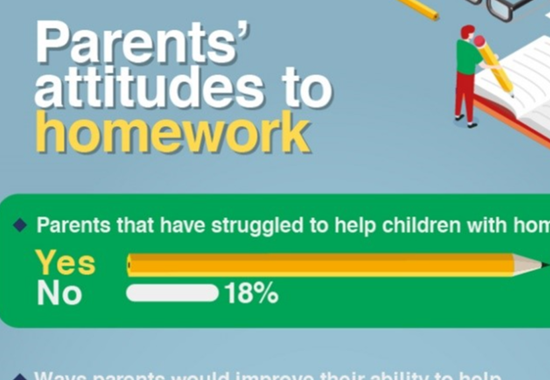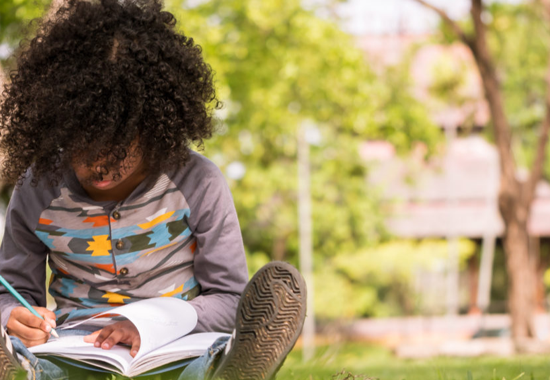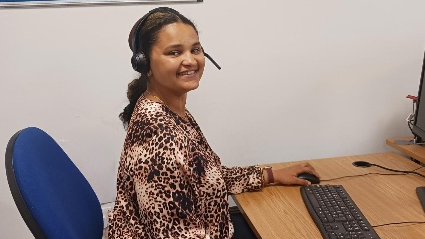Boosting Confidence Tips Ready For Back To School
Education & Parenting 887
Added by:
Shropshire Mums on Wed Aug 28 15:05 2024
Four Tips to Boost Your Child's Confidence for Secondary School Success
As summer draws to a close, many families are their children for the academic year ahead. For some, the transition will be bigger than others, particularly those moving away from primary school and starting a new adventure in secondary school.
Isabella Twaite, MENSA testing and Geography lead at comprehensive school The Royal Liberty School in Romford shares her tips for boosting your child’s confidence and setting them up for secondary school success. Isabella is a recent winner of a Silver Award for Outstanding New Teacher at the Pearson National Teaching Awards.
Normalise the nerves:
It’s normal for children to be nervous and overwhelmed at the start of term, especially when faced with a whole new school environment. Help them by talking about changes, acknowledging the nerves and highlighting some of the positive opportunities their new school will bring, from more academic opportunities to new extra-curricular activities.
Prioritise routine and sleep:
The rules, understandably, can become more relaxed over the summer holidays but, as the new term approaches, and with a complex new routine to navigate, it is important to make sure everyone is clear on the new schedules and expectations. The most significant thing you can do for your child to help them have a positive start to school is to ensure that they are getting enough sleep. This might include setting a clear bedtime during the holidays, adding time limits for gaming or removing devices altogether at bedtime. Your child will be clearer headed for a demanding new learning environment when they’re well rested, and making sure they have clear boundaries on sleep and access to technology will only help them in the long run.
Encourage independence:
One of the biggest shifts in the transition to secondary school is the expectation for students to take a more independent approach to learning, from taking responsibility for their more rigid and busy timetable to getting to lessons on time and managing their homework. Get them thinking about some simple steps they can take at home to make the school week easier. Printing out their new timetable and discussing systems to ensure they have the right books ready on the correct days, or clothing for extracurricular activities, is a great way to get started.
Build their resilience:
Secondary school pushes young people to do things they have never done before, from exploring a new activity to getting to grips with a new subject. We are all guilty of staying in our comfort zone to avoid making mistakes, but it is important to remind your child how normal mistakes are and how we learn from them. To help build up this resilience, whether academically or socially, you could set small targets to encourage them to try new things and be more confident in doing so, like joining a new sports team. Getting used to this will make embracing change at school - from forming new friendships to joining clubs or just getting used to the new routine of the school day - less daunting.
Five tips to get help your child get mentally and emotionally ready for primary school
This autumn, many children are starting primary school for the very first time. It can be a scary and daunting but also an incredibly exciting time. Parents can help their children transition smoothly by helping children prepare emotionally, socially, and mentally. Learning mentor and former mental health nurse Patricia Gawthrope, from Park View Primary School, Prestwich, Greater Manchester, offers her top tips to help parents get their child ready. Patricia has just won a Silver award at the Pearson National Teaching Awards in the category ‘Unsung Hero’.
Preparation is Key -
Make sure to have open discussions with your child about this big change. Discuss the new school, what activities they might take part in, and the new adults and friends they’ll meet. If you can, visit their new school and classroom so your child is familiar with their new environment.
Listen to their feelings -
Listen to your child's concerns and acknowledge their feelings. Reassure them that it's normal to feel nervous or anxious. Encourage expression through talking, drawing, or role-playing. Once they start, talk about their day, and ask what they’ve been up to and what activities they enjoyed. This will encourage positive association and give you the opportunity to tackle any negative feelings they might be experiencing.
Get involved -
Communicate with your child's teachers regularly. Make sure they are up to date with any situations happening at home, or any feelings your child may have been experiencing. They will be there to support your child through this transition as much as you are. Remember they see this every year, so will be the experts in how to help you both.
Build social connections -
Reach out to parents who are going through the same thing, and ideally with children going to the same school as yours. Organising coffee or play dates for you and your child will help establish relationships between the children, and they will have a friendly face in the classroom from day one.
Maintain a positive attitude -
Although this is a big change for you as well, it's important to make sure this experience stays as positive as possible. Stay upbeat and calm to help your child feel reassured. When discussing learning, use positive language so your child will see this experience as something new and fun instead of something scary.
We know how scary this time can be for all the family so it's important to always remember that this new beginning is a chance for your child to develop both academically and socially. School days are some people's fondest memories, and this is a chance for your child to make the most of them.


























